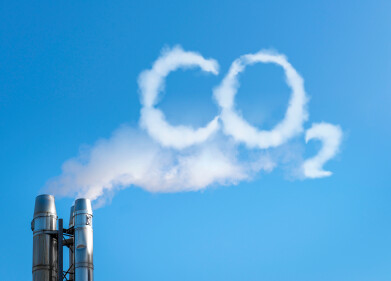Fuel for thought
8 Everyday Products That Use Hydrocarbons
Mar 04 2021
As the name suggests, hydrocarbons are a chemical compound consisting of solely hydrogen and carbon atoms. While they might sound like they are confined to a laboratory setting that’s far removed from our daily lives, they’re actually found in a number of common household products that many of us use every day. Here’s a quick rundown of eight items that you might not have known contain hydrocarbons.
Aspirin
Did you know that the tablet you take to get rid of a headache, inflammation or a fever is actually made from benzene? Benzene is a hydrocarbon found in petroleum, which is then turned into phenol, before being converted into salicylic acid and finally acetylsalicylic acid or ASA, more commonly known as aspirin.
Food
Did you ever wonder why cheeses, fruits and vegetables sometimes have a waxy surface? That’s because paraffin wax – a soft, colourless solid that’s made up of hydrocarbon molecules – is used to coat these food products to prevent unwanted outcomes during preparation and transit. Indeed, advanced techniques of food analysis reveal that paraffin wax is also used as the base for chewing gum.
Lipstick
Paraffin wax isn’t just popular in the food and drink industry, either. It’s also used to manufacture a wide range of cosmetic products, including lipsticks. Plus, it’s also a key ingredient in scented candles.
False teeth
Centuries ago, dentures were made from substances such as wood, ivory or even real human teeth! Thankfully, science has moved on somewhat since then. Today, dentures are made from nylon, porcelain, metal and acrylic resin, which is a hydrocarbon.
Dry shampoo
Dry shampoo offers users the convenience of being able to spray the product directly onto their hair without the use of water. In order to achieve that, it must use liquified petroleum gas, or LPG, which is a mixture of hydrocarbons like propane and butane.
CDs and DVDs
CDs and DVDs are manufactured from polycarbonate plastics, which are themselves derived from hydrocarbons. However, they also require the use of sophisticated petroleum-based lubricants in order to make sure the discs spin smoothly.
Solar panels
Fossil fuels are integral in the manufacturing process of solar panels, since they provide the energy necessary to fashion the components. What’s more, hydrocarbons are also contained in the actual panels themselves, with synthetic plastic parts a key part of the solar cells. However, it’s believed that these plastics will soon be substituted for a more sustainable alternative in the shape of plant-based fibres.
Clothing
While some garments are made from purely wool or cotton, the majority (around 60%) of all clothing worldwide contains an element of polyester in its makeup. This hydrocarbon-based fibre is not biodegradable, meaning it’s not as good for the environment as more organic alternatives.
Digital Edition
PIN 26.1 Feb/Mar 2025
March 2025
Analytical Instrumentation - Elemental Analysis for Quality and Process Control at Refineries, for Lubricants and Wear Metals in Engine Oils - Synthetic Lubricants: New Developments - Scaling...
View all digital editions
Events
Mar 31 2025 Hannover, Germany
Mar 31 2025 Beijing, China
Apr 02 2025 Saigon, Vietnam
Apr 02 2025 Atyrau, Kazakhstan
Apr 08 2025 Birmingham, UK



.jpg)

.jpg)













